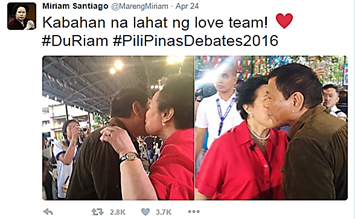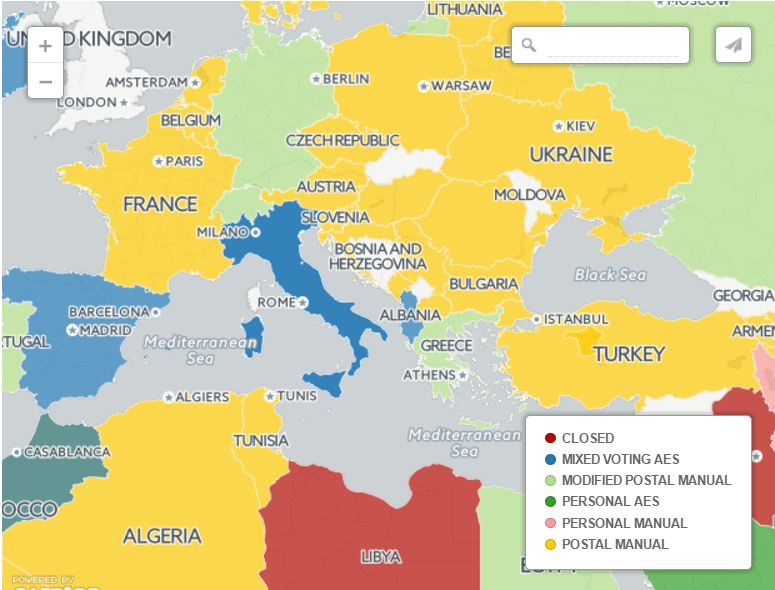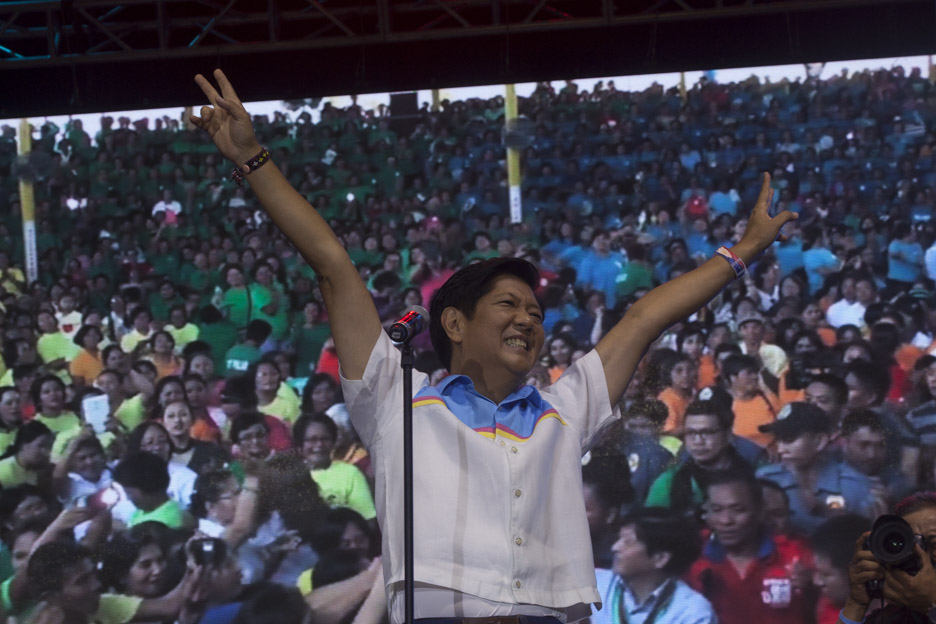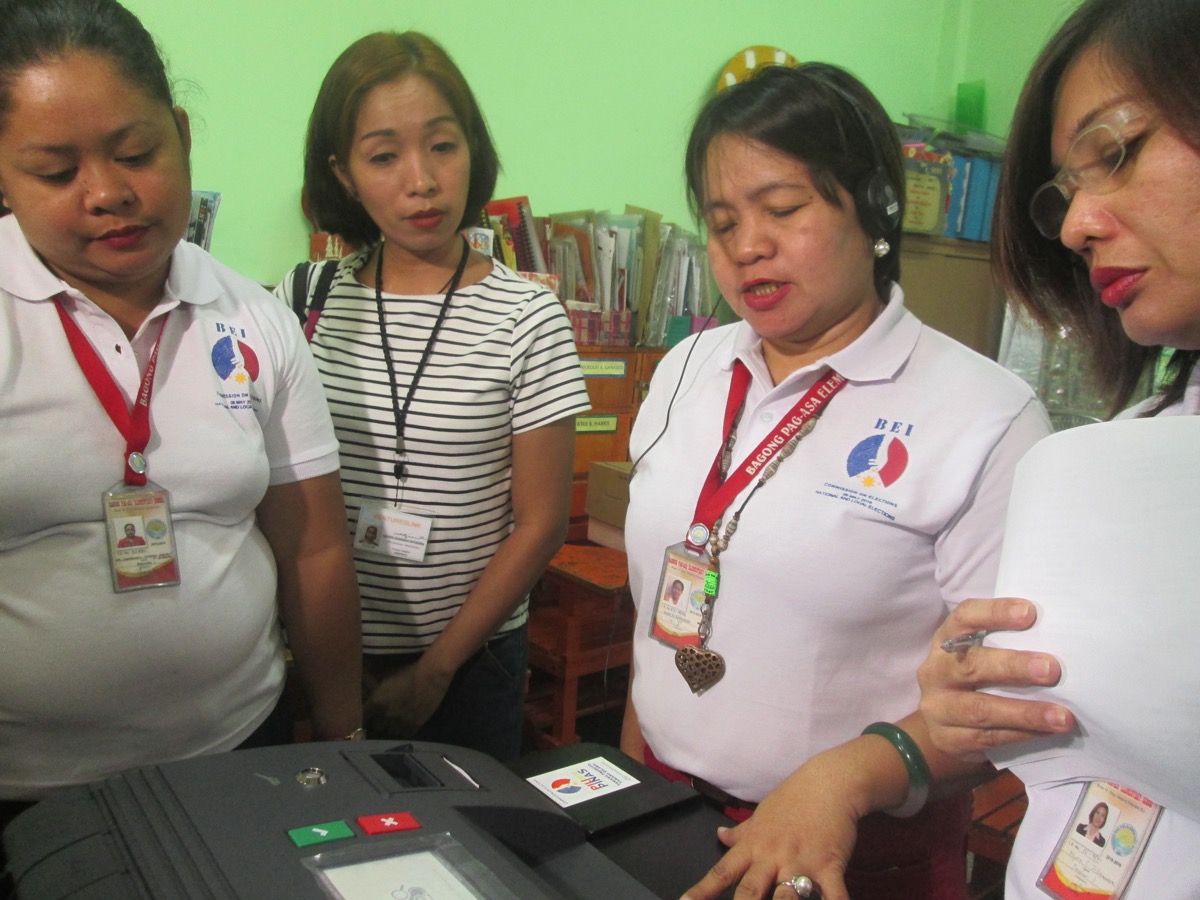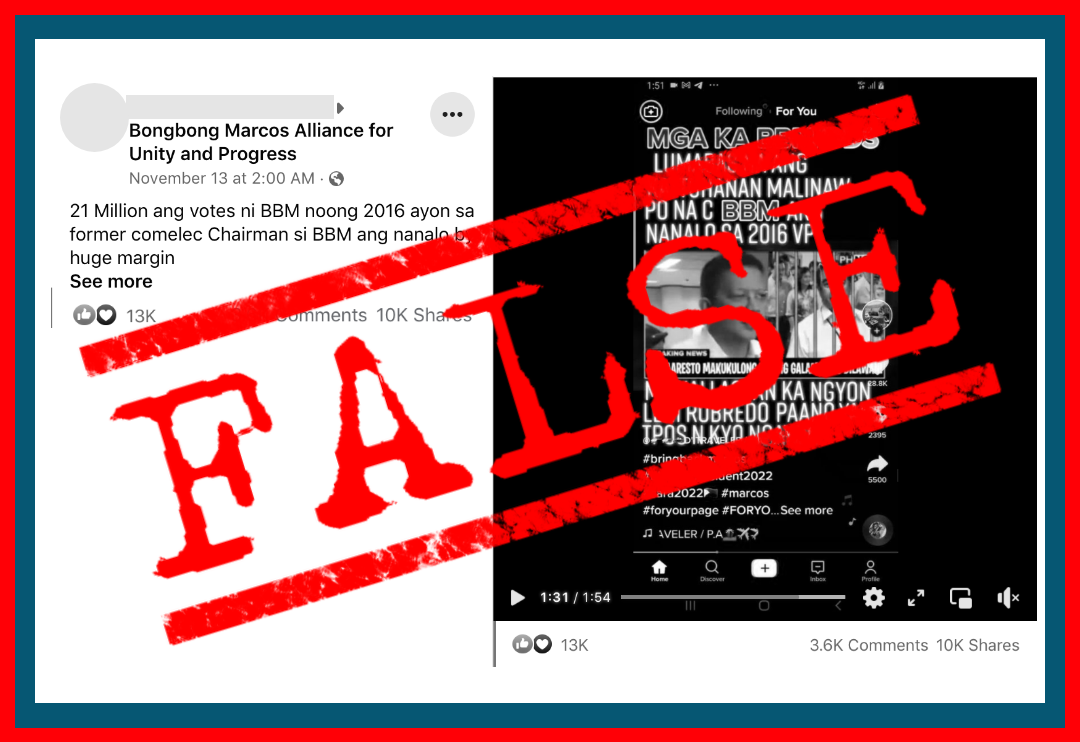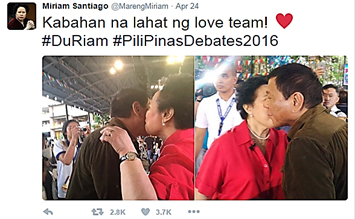
By TESSA BARRE, FAITH BROWN, NICA CRUZ, PAUL JOHN DOMALAON, YVETTE MORALES AND CHRISTIAN VENUS
“KABAHAN na lahat ng love team! <3 #Duriam #PiliPinas2016.”
After a grueling five-hour presidential debate, one would think none of the presidential candidates for the 2016 national elections would have the time to post on Twitter.
Yet a photo of presidentiable Sen. Miriam Defensor-Santiago kissing fellow aspirant and Davao City Mayor Rodrigo Duterte on the cheek was tweeted by someone with her name—and with a funny caption, too.
Almost two days after it was posted, the photo gathered more than 2,800 retweets and 3,700 favorites — much more than the engagement received by her opponents’ official Twitter accounts which tweeted about the same event.
If only the elections were based on the number of followers a candidate has on social media.
In reality, their online presence, whether official or unofficial, cannot be indicative of their popularity.
Defensor Santiago has reached 2.5 million followers on Twitter since her account opened in 2010—76 percent more than that of Manuel “Mar” Roxas II who has the most followers on Twitter next to the senator.
Her official hashtags #MiriamFight, #Miriam2016 and #SiMiriamAngSagot are also among the most widely used among the official hashtags of the presidentiables.
However, only 2 percent of registered voters would pick Defensor-Santiago as president, according to the latest Pulse Asia and Social Weather Stations surveys.
This contradicts the prediction the senator had made in 2014, saying social media would overturn the influence of billion-peso campaign paraphernalia.
Online campaigning helps candidates reach thousands of voters and nonvoters alike without spending much—or possibly, none at all. In creating a Twitter account, for example, one needs only to have an e-mail address and an account name to be entitled to unlimited 140-character posts and an opportunity to connect with at least 9.5 million Filipino Twitter users as of 2012.
With social media’s wide array of possibilities, netizens took the opportunity to make fun of the candidates by creating impersonation accounts using the candidate’s image, paired with a convincing handle.
In contrast to the official accounts’ nature, fake or parody accounts usually post humorous, often profanity-laden content that attracts tens of thousands of followers.
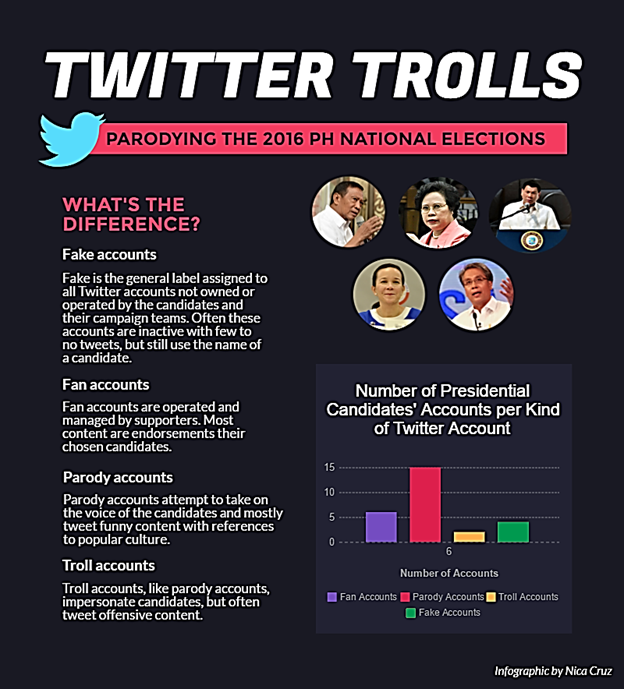 Despite having the least followers on Twitter at 38,976, Partido Demokratiko Pilipino-Lakas ng Bayan (PDP-Laban) bet Rodrigo Duterte would probably win if the elections were held today, according to the latest surveys.
Despite having the least followers on Twitter at 38,976, Partido Demokratiko Pilipino-Lakas ng Bayan (PDP-Laban) bet Rodrigo Duterte would probably win if the elections were held today, according to the latest surveys.
His official account, @RRD_Davao, is the most interactive among the other candidates’. It has a growth rate of 35.18 percent, way ahead of the others.
Interestingly, the Davao City mayor also has the most number of unofficial accounts, which range from troll, parody, fake and fan accounts, with several of his parody accounts even having more followers than the official one.
@AkoSiDuterte with 75,200 followers as of March 26 has the highest number of fans among Duterte’s top parody accounts. It shares numerous humorous and sarcastic content “Duterte-style” according to its bio.
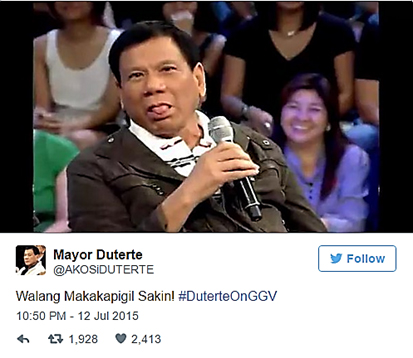
In close fight for the presidency is Sen. Grace Poe, who would be voted for by 25 percent of registered voters based on the most recent surveys. The independent candidate also has the most number of unofficial accounts next to Duterte. However, Poe’s are not as active as Duterte’s, hence the meager number of tweets.
In terms of content, the top tweets of parody accounts can range from serious commentary to lighthearted jabs at popular culture.

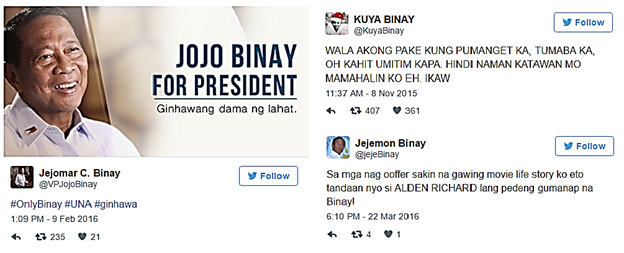
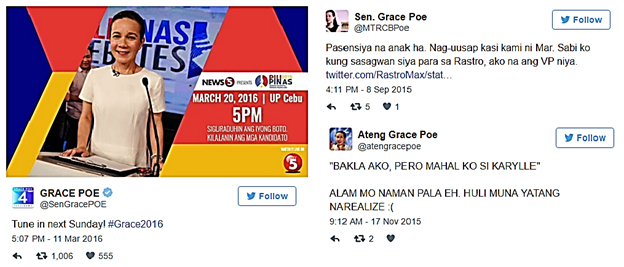
For the vice presidential candidates, Sen. Bongbong Marcos, who currently leads the vice presidential race according to Pulse Asia and is tied with Rep. Leni Robredo in the SWS survey, incidentally has the most number of followers at 364,818.
But Robredo has the most active Twitter account in terms of the number of tweets, retweets and likes.
Sen. Chiz Escudero, who placed third in the Pulse Asia and SWS surveys, has the lowest engagement despite having the most conversations.
Considered as the one of the underdogs in the race, Sen. Gringo Honasan, who has the least number of followers, turned out to have the most number of unofficial accounts with four fake accounts.
Most unofficial accounts, on the other hand, were created even before the campaign period started. Last year saw the most number of unofficial account creation since 2009, with 12 accounts created.
The first parody account dedicated to Duterte was created way back in December 2011. Poe’s official Twitter @SenGracePOE was created four years back, but one of her fake accounts @PoeGrace was created as early as 2009.
However, it would be hard to determine the original purpose of these accounts, as Twitter allows changing the account name and Twitter handle every now and then.
(The authors are University of the Philippines-Diliman journalism majors who produced this piece for Journ 116, Computer-Assisted Reporting, taught by VERA Files trustee Yvonne T. Chua.)
